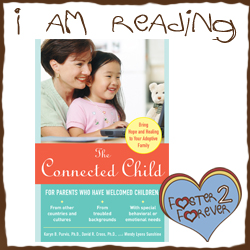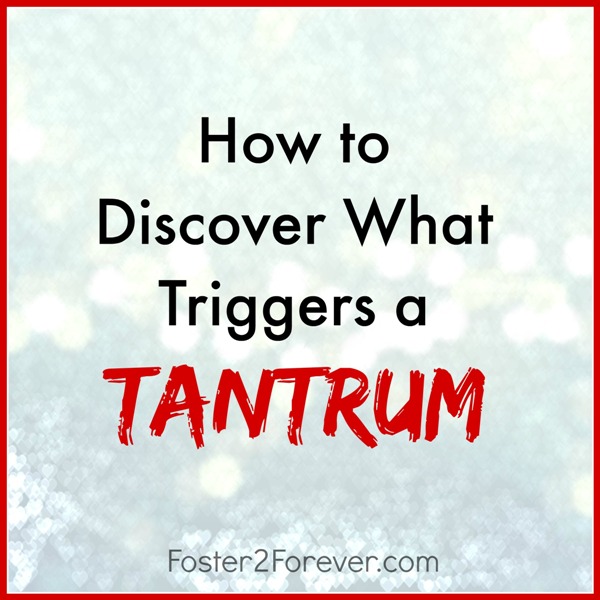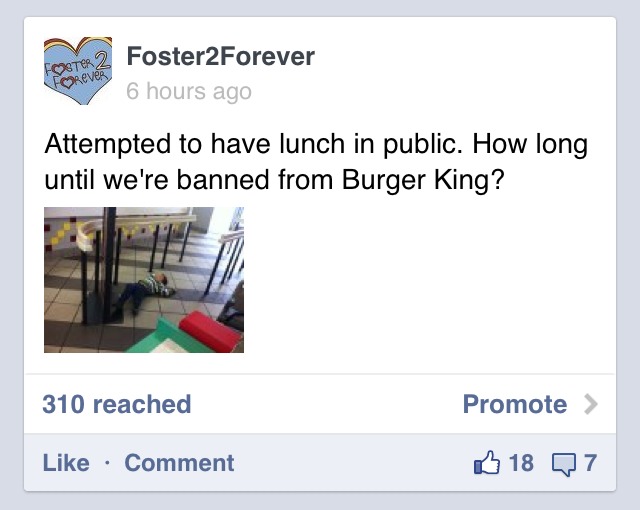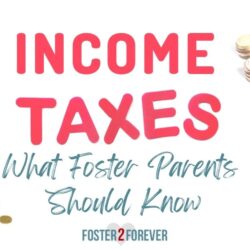Does your child randomly throw a tantrum for no reason? There could possibly be big reason for the tantrum…
For those of you who follow on Facebook, Instagram, or Twitter, you may have read this update–
What was the trigger for this emotional outburst?
The 5-year-old who had been diagnosed with Reactive Attachment Disorder, had had a GREAT morning! We rewarded him with choosing where we would have lunch after church. He decided he wanted to have lunch at “Bo King” – Great! Hubs ordered our lunch when the child decided he wanted some Cinnabon rolls.
FosterDad’s reply: “After you finish lunch.”
And then the tantrum started! There was not a “NO” said to the little tyke. But, regardless, he fell to the floor immediately, in full-tantrum mode.
Anything we said to him, only agitated him more. So we left him there. In the order line at Burger King. With other customers stepping over him.
Anytime I went to check on him, it only inflamed him more – to the point where he was kicking the display signs. So I left him there.
The rest of the family was in the play area eating. Then after a few minutes, he began peeking to see what we were doing. Eating. That’s what we were doing. Not paying attention to him.
Then he stands up, one hand on the napkin dispenser, daring me to notice him, so he could pull out all the napkins and throw them on the floor. I moved to where he couldn’t see me.
A few minutes later, he peeked into the play area. My response:
“Oh boy, you look hungry! Is my little boy hungry?”
He then hopped into my lap and enthusiastically ate his lunch!!! MY SON WAS HUNGRY!!! (Low blood sugar can trigger the fear response in a neglected child)
I did acknowledge his poor behavior by discussing it while rubbing his back. “Does throwing a fit get your way? No? Let’s try harder next time!”
Afterward we had the best Sunday afternoon at home as a family in a month!
I’m currently reading The Connected Child: Bring hope and healing to your adoptive family (are you reading along with me?).
 I’m now on Chapter 3 (“Solving the Puzzle of Difficult Behavior”) which discusses how a child’s emotional trauma and difficult background can trigger difficult behaviors in everyday situations.
I’m now on Chapter 3 (“Solving the Puzzle of Difficult Behavior”) which discusses how a child’s emotional trauma and difficult background can trigger difficult behaviors in everyday situations.
The Takeaways About Emotional Triggers:
- Keep a journal of your child’s daily activities and behaviors to try to decipher the emotional triggers
- Learn everything you can about a child’s background and trauma, i.e. sexual abuse, prenatal drug or alcohol exposure, neglect
- Watch for patterns (i.e. transitioning from one activity to the next)
- Be alert to any triggers that may cause your child to lose control of their emotions.
Read the shocking truth about how I discovered the trigger behind this child’s outbursts.






